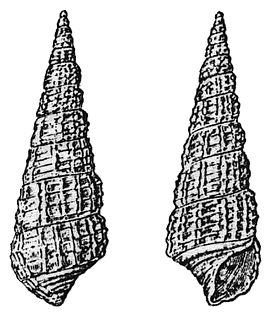
Hydrobiidae, commonly known as mud snails, is a large cosmopolitan family of very small freshwater and brackish water snails with an operculum; they are in the order Littorinimorpha.

Planorbidae, common name the ramshorn snails or ram's horn snails, is a family of air-breathing freshwater snails, aquatic pulmonate gastropod molluscs. Unlike most molluscs, the blood of ram's horn snails contains iron-based hemoglobin instead of copper-based hemocyanin. As a result, planorbids are able to breathe oxygen more efficiently than other molluscs. The presence of hemoglobin gives the body a reddish colour. This is especially apparent in albino animals.

Lymnaeidae, common name the pond snails, is a taxonomic family of small to large air-breathing freshwater snails, aquatic pulmonate gastropod mollusks, that belong to the clade Hygrophila.

Bithyniidae is a family of small freshwater snails with an operculum, aquatic gastropod molluscs in the clade Littorinimorpha.

Pseudamnicola is a genus of small brackish water snails with an operculum, aquatic gastropod mollusks in the family Hydrobiidae.

Theodoxus is a genus of nerites, small water snails with an operculum, some of which live in freshwater, and some in both freshwater and brackish water, aquatic gastropod mollusks in the family Neritidae, the nerites.

Turritellidae, common name the "tower shells" or "tower snails", is a taxonomic family of small to medium-sized sea snails, marine gastropod molluscs in the clade Sorbeoconcha.

Cerithiidae, common name the cerithiids or ceriths, is a large family of medium-sized marine gastropods in the clade Sorbeoconcha.

Amnicolidae is a family of small freshwater snails with a gill and an operculum, aquatic gastropod mollusks in the superfamily Rissooidea.

Anisus is a genus of small air-breathing freshwater snails, aquatic pulmonate gastropod mollusks in the subfamily Planorbinae of the family Planorbidae, the ramshorn snails and their allies.

Lithoglyphidae is a family of small freshwater snails with gills and an operculum, aquatic gastropod mollusks.

Pachychilidae, common name pachychilids, is a taxonomic family of freshwater snails, gastropod molluscs in the clade Sorbeoconcha.

Parhedylidae are a taxonomic family of sea slugs, marine gastropod mollusks in the superfamily Parhedyloidea.

Pyrgula is a genus of freshwater snail with a gill and an operculum, an aquatic gastropod mollusk in the family Hydrobiidae.
Ecrobia is a genus of very small aquatic snails, operculate gastropod mollusks in the family Hydrobiidae.
Benedictia is a genus of freshwater snails with an operculum, aquatic gastropod molluscs or micromolluscs in the family Lithoglyphidae.
Turricaspia is a genus of aquatic snails which includes marine snails, brackish water snails and freshwater snails which all have a gill and an operculum, aquatic gastropod mollusks in the family Hydrobiidae. Turricaspia is the type genus of the Turricaspiinae, which is a synonym of Pyrgulinae.

Truncatelloidea is a superfamily of snails, gastropod mollusks in the clade Caenogastropoda.

Choanomphalus is a genus of air-breathing freshwater snails, aquatic pulmonate gastropod mollusks in the family Planorbidae, the ram's horn snails, or planorbids. All species in this genus have sinistral or left-coiling shells.















